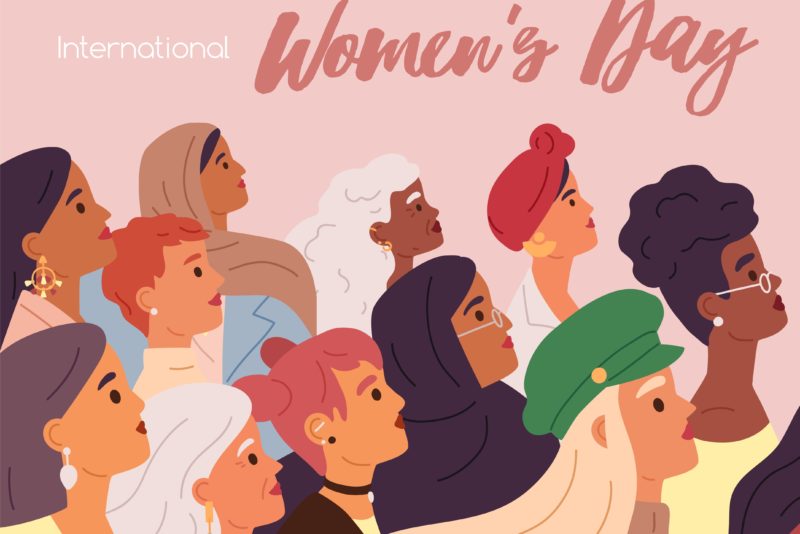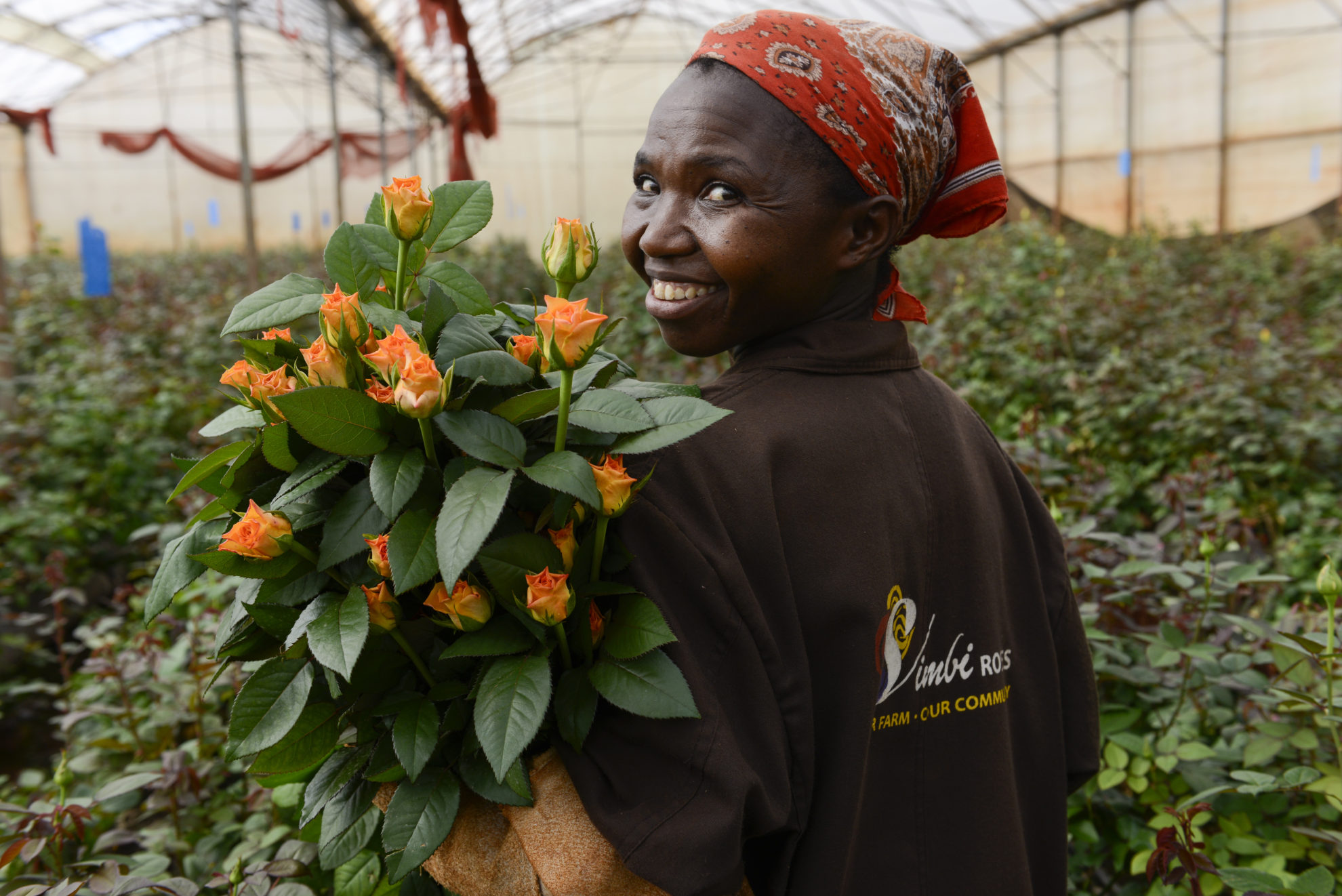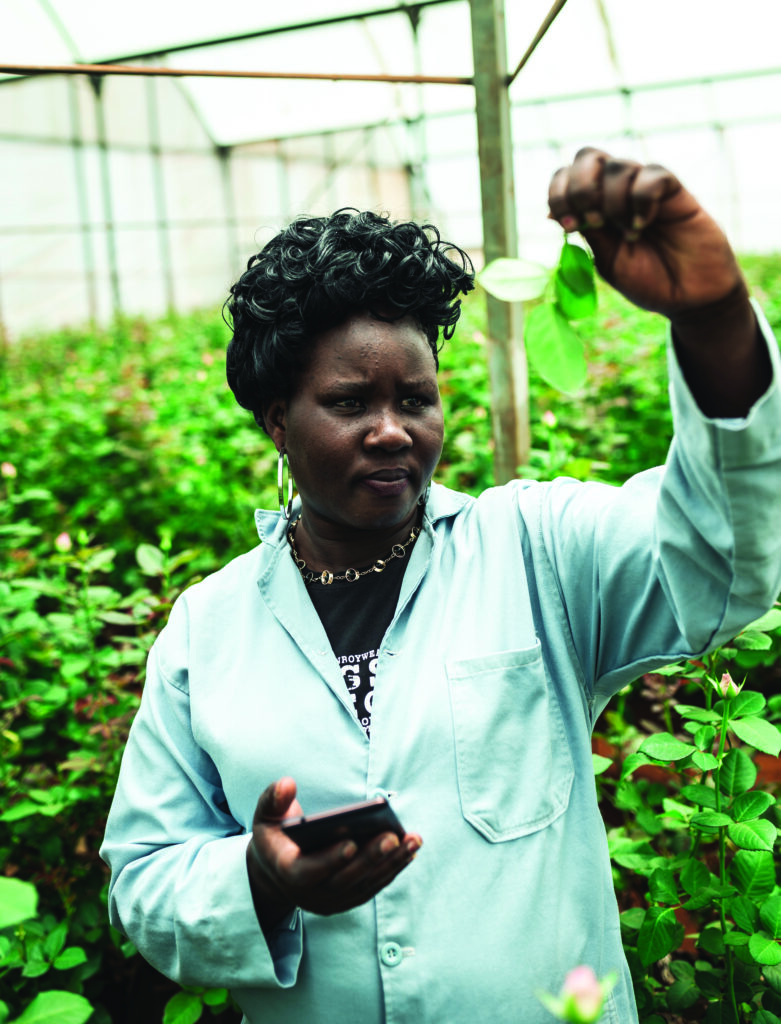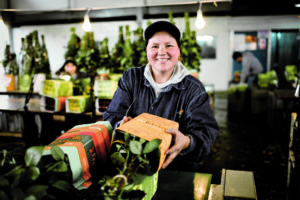
How do we go from challenging gender equality to making sure women are truly included?
Read more

When you choose Fairtrade flowers, tens of thousands of flower workers benefit from higher pay and better working conditions.

The women in our community have understood that they can do anything that men do. Look at me: I used to be a simple flower worker. Today, I am well-educated and work in a leading position.
AGNES CHEBII
ROSE FARM SUPERVISOR, KENYA
While many millions of cut flowers sold in Canada are grown in resource-heavy greenhouses across the country, we also depend on imported flowers from Africa or South America.
However, not all flower-producing countries have the same health and safety rules or minimum wage levels that Canada has. In addition, the environmental track record of many flower growing operations is very poor, with workers routinely exposed to harmful levels of pesticides and other chemicals that are banned in Canada. Long days of labour in extreme heat, all for very little pay and unreliable employment, are common in the flower sector.
Unlike many other Fairtrade commodities, there is no Minimum Price for flowers. Instead, the Fairtrade Premium is set higher and goes directly to flower workers. They often use the Fairtrade Premium to provide education, credit, and healthcare services for workers and their families, and to improve housing conditions.
Workers on Fairtrade flower farms have formal contracts and must be provided with protective equipment when spraying chemicals, though the Fairtrade Standards prohibit the use of hazardous pesticides. As of 2017, the Standards also implemented a base wage requirement that has seen many workers receive higher wages. In Tanzania, for example, incomes are now 30% above the national minimum wage.

Fairtrade can make a real difference for farmers and workers, their families, and their wider communities.

AGROCOEX S.A. is a family owned business. The founder shareholders of the company created it for the production and export of roses in June of 1992. Back then they had one small farm with 15 employees. Their roses were sold to one customer, shipping one day per week. Now, they produce more than 65,000 stems per day on three farms with more than 250 full-time employees.
Read more about the cooperative, the impact of Fairtrade Premium investments, and farmer stories
Learn more with these recent stories about Fairtrade flowers: